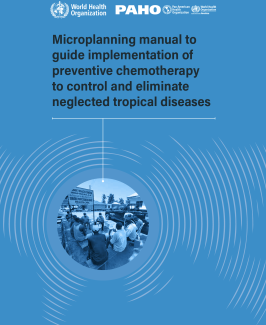
Soil-transmitted helminthiasis (STH) is among the most common infection globally, primarily affecting the world’s poorest and most deprived communities. Over 25 million SAC are at-risk for STH in the 10 countries in Act | West’s portfolio. Caused by three categories of parasitic worms—hookworms, whipworms and roundworms—STH spreads when people inadvertently ingest contaminated food or water or walk barefoot on contaminated soil. Contamination occurs when worm eggs are passed into the soil or water via the feces of an infected person. STH can cause pain and diarrhea, fatigue, weakness malnutrition, impaired growth and development in children, and even intestinal obstruction and death.
globally, primarily affecting the world’s poorest and most deprived communities. Over 25 million SAC are at-risk for STH in the 10 countries in Act | West’s portfolio. Caused by three categories of parasitic worms—hookworms, whipworms and roundworms—STH spreads when people inadvertently ingest contaminated food or water or walk barefoot on contaminated soil. Contamination occurs when worm eggs are passed into the soil or water via the feces of an infected person. STH can cause pain and diarrhea, fatigue, weakness malnutrition, impaired growth and development in children, and even intestinal obstruction and death.
Act | West Support
Act | West provides financial and technical support to national MOH to treat SAC and certain at-risk adults periodically with medicines that treat SCH and STH and control their spread. In FY12–FY22, over 174 million and 359 million SCH and STH treatments, respectively, of which, were delivered to over 36 million and over 47 million SAC in Act | West countries with USAID support.Act | West also supports technical data reviews and in Mali and Burkina Faso, multi-sectoral national technical committees. In addition, Act | West supports national efforts to develop partnerships for NTD sustainability as well as for programmatic co-implementation with other health programs.




